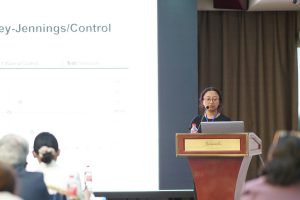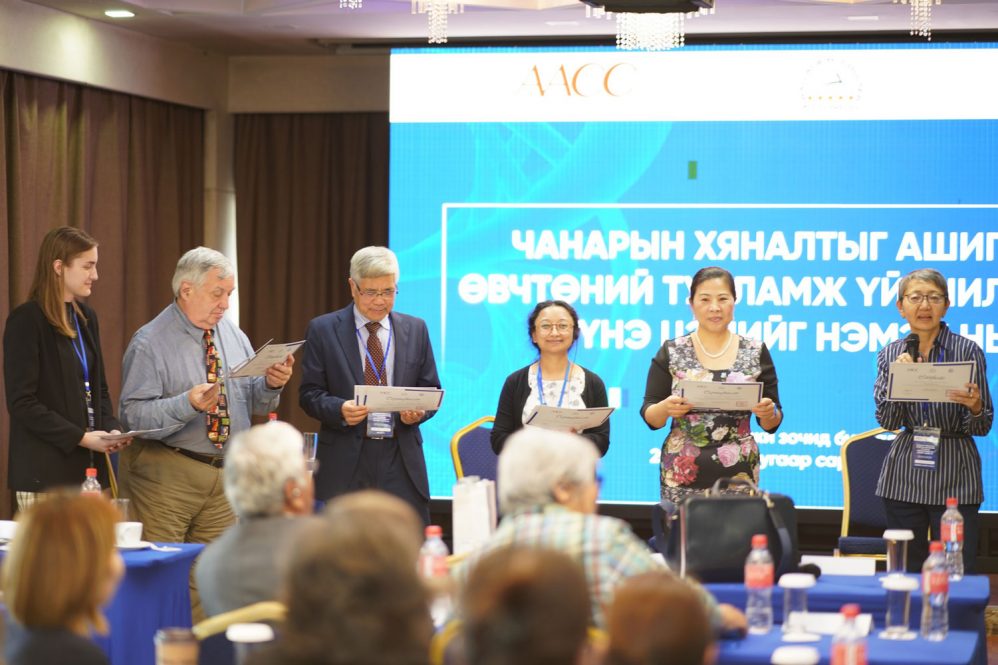As an assistant professor of pathology and laboratory medicine, Anu Maharjan is driven to share her knowledge with UConn medical students. As a volunteer with the Association for Diagnostics and Laboratory Medicine, she is driven to share her knowledge clinical labs around the world.
Maharjan, who also is the director of UConn Health’s Core Laboratory, led three topics at the ADLM’s quality control workshop in Mongolia last year.
“These workshops help us understand how laboratory medicine is set up in different parts of the world, and the host country also gets information about how U.S. laboratories function in terms of regulation, quality, and education,” Maharjan says. “The idea of these workshops is to ensure that laboratories improve their quality programs so that their patient test results are reliable.”

Maharjan’s presentations were titled “Troubleshooting and Corrective Actions for Quality Control Failures,” “Risk-based Approach for Quality Control,” and “Quality Control Case Studies.” She shared her first-hand experience with a quality control tool known as “moving average,” a method of recalculating data in real time as additional data becomes available, and notes that both the labs there and our labs can learn from each other.
“I was happy to share our flowchart in one of the presentations on how to troubleshoot when we receive alerts for moving average,” Maharjan says. “I was able to show some of the pictures from Mongolia and show the enthusiasm that us laboratorians have throughout the world to make laboratory tests more effective and accurate. I was able to share with our supervisors here that the Mongolian laboratorians have similar pain points like we do.”
Another takeaway from the workshop was how regulations governing lab medicine vary around the world. For example, lab medicine in the U.S. is subject to rules and regulations of the Clinical Laboratory Improvement Amendments through the Centers for Medicare and Medicaid Services, which requires frequent proficiency testing to earn and maintain accreditation. Maharjan says in Mongolia, only the largest labs participate in proficiency testing. She suggests a greater commitment to quality initiatives globally would help the laboratory medicine community get closer to the goal of standardization.
“Clinical laboratorians are usually the unnoticeable health care staff that are working to provide reliable test results,” Maharjan says. “Communities in laboratory medicine throughout the world want to advance health care and that starts with providing better quality in terms of laboratory testing.”
The ADLM is an international association of more than 70,000 clinical lab professionals, physicians, researchers and business leaders focused on achieving better health through laboratory medicine.
A member of the ADLM since 2017, Maharjan serves as chair of the group’s New York Metro Local Section and is a member of the Asia Pacific ADLM Global Laboratory Quality Initiative, which is what led to the workshop in Mongolia.
“We emphasize the value of laboratory medicine and foster scientific enhancement in underserved regions of the world,” Maharjan says. “The focus of our workshop in Mongolia was to provide practical approaches to understanding the subject of laboratory quality.
“Presenting what I know about practical approaches to laboratory quality control to another part of the world was humbling and satisfying at the same time. In addition, I am originally from Nepal, and the idea of being able to provide an outreach in Asia-Pacific region really drew me into this group.”



